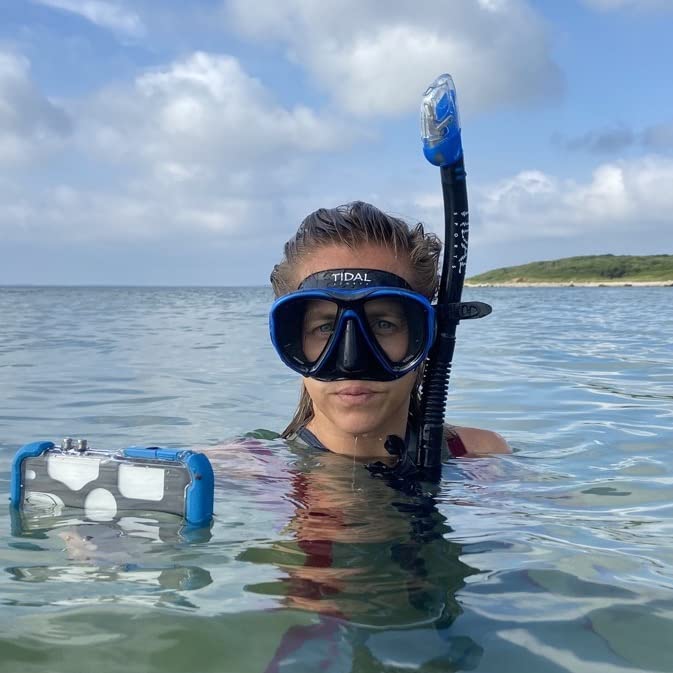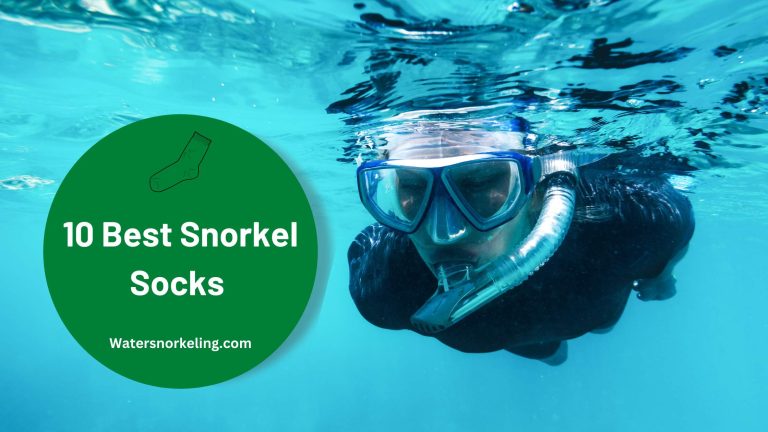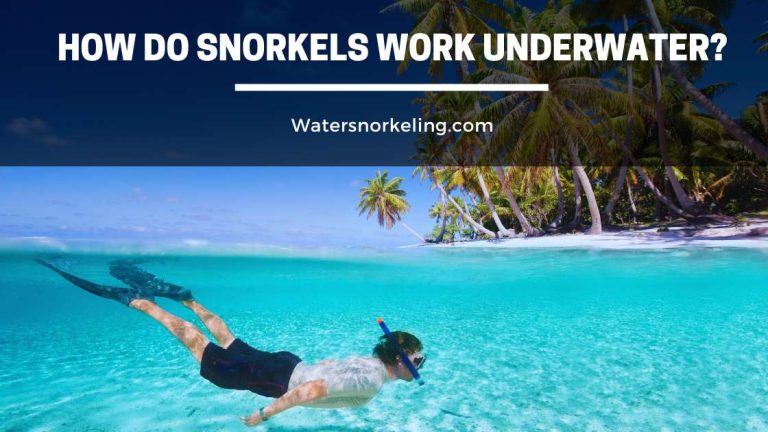Difference Between Snorkeling And Scuba Diving – A Detailed Guide
Difference Between Snorkeling And Scuba Diving
Snorkeling and scuba diving are two different types of underwater activity. Snorkeling is a form of underwater exploration by individuals not using scuba gear. Its purpose is to observe fish, coral reefs, and aquatic features at the bottom of the ocean.
Whereas scuba diving is a form of underwater exploration in which people wear protective masks and fins to allow them to breathe underwater. Continue reading if you want to know the difference between snorkeling and Scuba Diving.
Snorkeling Vs Scuba Diving | A Detailed Analysis
Snorkeling and scuba diving are popular aquatic activities that allow people to explore the underwater world. However, some critical differences between the two are essential to understand.
- Required Equipment
The required gear is the basic difference between snorkeling and scuba diving. Snorkeling involves using a snorkel, a small tube that allows you to breathe while your face is in the water. A snorkel is accompanied by a pair of fins, which help you swim more efficiently, and a mask, which allows you to see underwater.
Scuba diving requires using a much more complex and specialized set of equipment. It includes a compressed air tank, a regulator to control the flow of air from the tank, a buoyancy control device to help you control your ascent and descent, and weights to help you achieve neutral buoyancy.
- Training And Certification
The level of training and certification required is also a major difference between scuba a. Snorkeling is generally considered a relatively low-risk activity enjoyed by people of all ages and abilities, provided they can swim and are comfortable in the water.
Scuba diving, on the other hand, is a more advanced activity that requires a higher level of skill and knowledge. As such, no formal training or certification is required to go snorkeling. However, it is better to familiarize yourself with the basic safety guidelines and follow them at all times.
All scuba divers should get proper training and certification before diving. It involves completing a course that covers the basic principles of diving and hands-on training in using the necessary equipment.
- Exploration Depth
The depth at which you can explore oceans is another difference between snorkeling and scuba diving. When snorkeling, you will typically stay near the water’s surface, where you can easily breathe through your snorkel.
You will mostly be limited to exploring the shallowest parts of the underwater world, although you may be able to dive down briefly to get a closer look at something interesting. At the same time, scuba diving allows you to explore much deeper depths, as you can carry your air supply with you.
Scuba diving opens the possibility of exploring deeper, more remote ocean parts and allows you to see a much wider range of marine life. However, it is essential to note that scuba diving also comes with its risks. It includes decompression sickness (also known as “the bends”) if you ascend too quickly from deep depths.
- Time Spent Underwater
The time you will also differentiate between Snorkeling Underwater and scuba diving. When snorkeling, you will need to come up for air frequently, as you rely on the air in your lungs and your snorkel. So, you will stay underwater for a few minutes.
Scuba diving, however, allows you to stay underwater for much longer, as you have a constant supply of air from your tank. Therefore, you can spend much more time exploring the underwater world and seeing all it offers.

Do I Need To Use Different Gear For Snorkeling And Scuba Diving? If Yes, Then Which?
Yes, you do need to use different gear for snorkeling and scuba diving. Snorkeling gear typically includes a mask, fins, and a snorkel. Scuba diving gear consists of a mask, fins, a snorkel, a regulator, a buoyancy control device (BCD), a diving cylinder, and other accessories.
Here is a detailed breakdown of the gear you will need for each activity:
Snorkeling Gear
- Mask
A mask is a fundamental snorkeling gear, as it allows you to see underwater. Make sure to choose a mask that fits your face well and does not leak.
- Fins
Fins help you swim faster and more efficiently underwater. When choosing fins, consider your swimming ability and the type of water you will snorkel in.
- Snorkel
A snorkel is a tube that allows you to breathe while your face is underwater. Look for a snorkel with a good seal and a comfortable mouthpiece.
Scuba Diving Gear
- Mask
Like snorkeling, a mask is an essential piece of scuba diving gear. In addition to helping you see underwater, a mask also helps to equalize the pressure in your ears as you descend.

- Fins
Fins are critical for scuba diving, as they help you swim against the currents and navigate the underwater environment.
- Snorkel
You will not be using a snorkel to breathe while scuba diving, but it is still valuable equipment to have on hand in an emergency.
- Regulator
A regulator is a device that allows you to breathe from your diving cylinder. It reduces the pressure of the air in the cylinder and delivers it to you in a breathable form.
- Buoyancy Control Device (BCD)
A BCD is a vest-like device that allows you to adjust your buoyancy while diving. It is equipped with inflatable bladders that you can fill with air to make yourself more buoyant or deflate to sink deeper.
Diving Cylinder
A diving cylinder, also known as a scuba tank, stores the air you breathe while diving. The size and capacity of the cylinder you choose will depend on the type of diving you are going to do and how long you plan to stay underwater.
There are a few other accessories apart from snorkel gear that you may want to consider for scuba diving, such as a dive computer, a wet suit, a dive knife, and a dive light.
As you can see, quite a bit of gear is involved in snorkeling and scuba diving. While you can rent or borrow some of the gear, investing in your own mask, fins, and snorkel is usually a good idea.
By doing so, you will ensure that the gear fits you properly and is well-maintained. As for the other equipment, it is ideal to leave those to the professionals or invest in your own if you plan on diving frequently.

Frequently Asked Questions (FAQs)
Which Is Better, Snorkeling Or Scuba Diving?
Well, this is a bit of a subjective question, and it depends on what you are looking for in an aquatic adventure. Following are the things you need to consider when deciding between snorkeling and scuba diving:
- Depth
If you want to go deeper underwater, scuba diving is the way to go. Snorkeling is usually done in shallower waters. On the other hand, scuba diving allows you to explore the ocean’s depths and see all sorts of amazing marine life you cannot see while snorkeling.
- Time
Snorkeling is quicker, as you do not need to go through the same training and gear setup as you do with scuba diving. Snorkeling might be the better choice if you are short on time or just want a quick dip in the water.
- Physical Ability
Snorkeling is less physically demanding than scuba diving, as you do not need to carry all the heavy gear, and you are not exerting yourself as much while swimming. Snorkeling is a way to go if you have any physical limitations or want a more relaxed underwater experience.
- Cost
Scuba diving can be more expensive, as you must invest in all the necessary gear and undergo a certification process. Snorkeling might be the more affordable option if you are on a budget.
- Marine Life
Both snorkeling and scuba diving offer the opportunity to see a wide variety of marine life. But scuba diving allows you to get up close and personal with the creatures of the deep. Scuba diving might be the better choice if you want a more immersive underwater experience.
Ultimately, it depends upon personal needs and what you want to get out of your aquatic adventure. Both snorkeling and scuba diving are amazing ways to explore the underwater world, so it is hard to say which is “better.”
Which Is More Difficult, Scuba Diving Or Snorkeling?
Well, one is not necessarily “more difficult” than the other, but scuba diving requires more training and equipment than snorkeling. Are you looking for an easy-breezy underwater adventure? If so, then snorkeling might be the way to go. However, scuba diving is the way to go if you are up for a bit of a challenge and want to go deeper and see more of the underwater world.
That being said, scuba diving requires more physical exertion than snorkeling, as you will carry your gear and swim against currents. You must pay attention to your buoyancy and air supply while diving. It can be more challenging than just floating on the surface with a snorkel.
Do Sharks Mess With Scuba Divers?
Sharks are wild, so you should handle them with respect. Most sharks are more afraid of humans than we are of them. While it is not uncommon for sharks to approach divers as they are normally not aggressive toward humans.
Therefore, it is wise to be aware of your surroundings and follow safe diving practices when in the water. Some tips for minimizing the chance of a shark encounter while diving include:

- Avoid diving in areas where there is a high concentration of bait fish or where sharks are known to feed.
- Do not touch or try to feed sharks.
- Avoid diving at dawn, dusk, or night, as these are times when sharks are more active.
- Do not wear shiny jewelry or flashy colors when diving, as these can attract sharks.
- Follow the guidelines of your dive leader or instructor and pay attention to any safety briefings.
These simple guidelines will help ensure a safe and enjoyable diving experience. Remember, sharks are a vital part of the marine ecosystem and play an important role in maintaining the balance of marine life. So do not be afraid to dive with them. Just be aware and respect their space.
Can Non Swimmers Do Snorkeling?
Yes, non-swimmers can snorkel. Snorkeling is a fun way for people of all swimming abilities. It does not require much physical exertion, and you can float on the surface with a lifejacket or floatation device if needed. Therefore, non-swimmers must take a few extra precautions when snorkeling.
These are a few tips for non-swimmers who want to give snorkeling a try:
- Wear a lifejacket or floatation device. It will help you stay afloat and give you added confidence in the water.
- Look for a protected bay or lagoon with calm waters and a gentle slope. Therefore, it is easier to stay afloat and allows you to focus on enjoying the underwater scenery.
- Having a buddy when snorkeling is a good idea, especially if you are a non-swimmer. Your buddy can help keep an eye on you and assist you if needed.
- Consider taking a lesson with a certified instructor who can teach you the proper techniques and provide the skills you need to enjoy snorkeling safely.
With these tips in mind, non-swimmers can have a great time snorkeling and exploring the underwater world. Be sure to take it slow and listen to your body. If you feel uncomfortable or tired, it is okay to take a break or head back to shore.
Final Words
To sum it up, snorkeling is only used to view the underwater environment. Both snorkeling and scuba diving are popular hobbies where people can be immersed in water and observe marine life. You can perform scuba diving to explore tropical waters for entertainment, among other uses.






